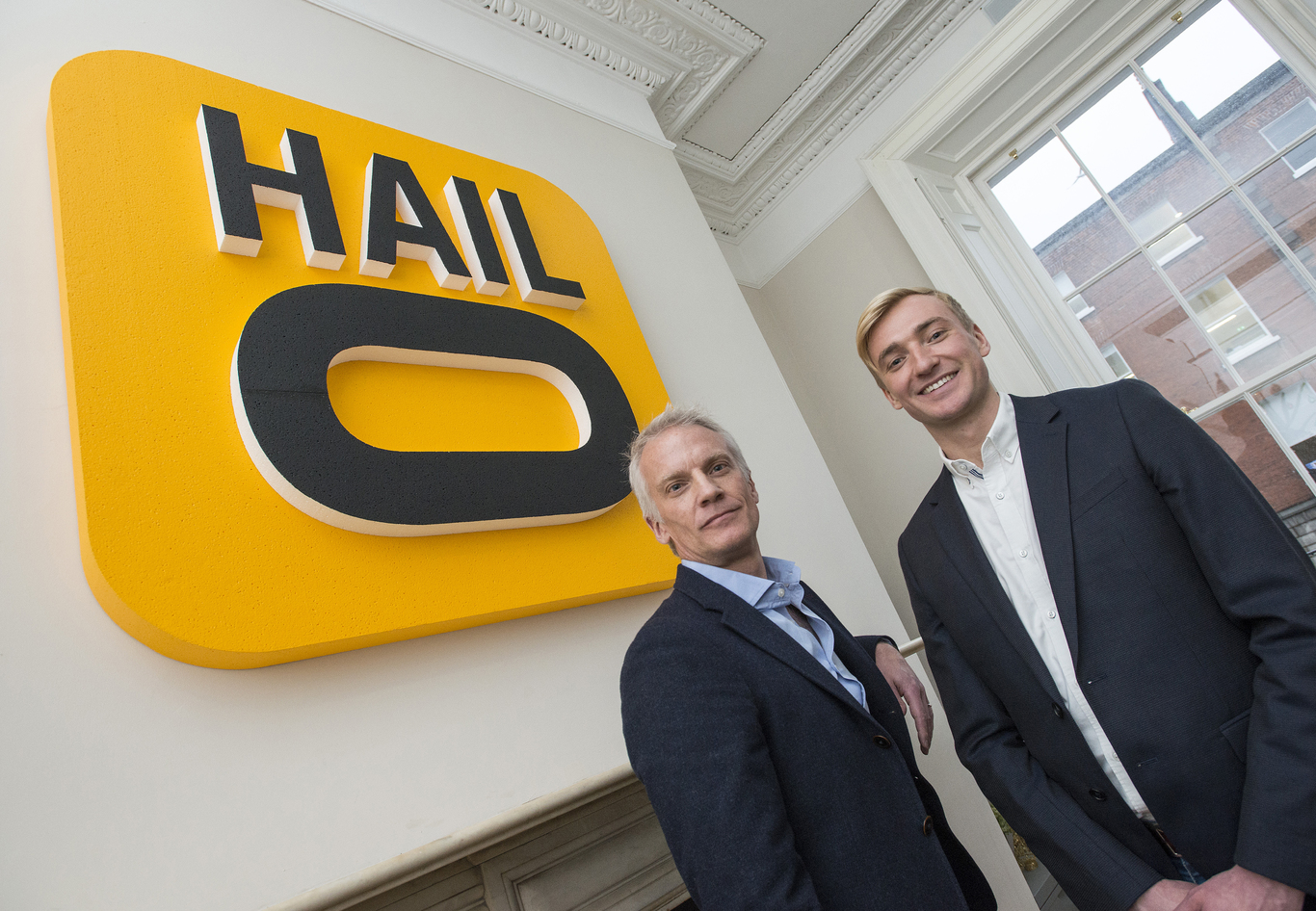'I'm not disappointed the Hailo name is disappearing. We'll be Europe's largest taxi app'
As part of our How My Business Works series we profile the Irish arm of taxi app Hailo.
THE MAN RESPONSIBLE for transporting thousands of people across Ireland’s capital city every day has spent the bulk of his life in a 10-kilometer block.
Tim Arnold, who heads up the Irish operations of popular taxi app Hailo, grew up in south Dublin, went to school and college in south Dublin and now works in south Dublin.
However, along the way there has been the odd dalliance here and there, with a posting in Dubai helping to provide a change of scenery.
After joining Enterprise Ireland, Arnold was dispatched to the Middle Eastern hub to help Irish companies that wanted to trade in the region.
It was there that he developed a desire to get involved in some sort of entrepreneurial activity.
“What I enjoyed the most when I was there was meeting senior executives and founders of Irish companies who had aspirations of international growth, it was probably through them that I decided that I would like to get involved with a startup,” he tells Fora.
It would be another year before he would return to his Dublin stomping ground again, taking a year out to travel around the world.
Upon his return in 2011 he did some work with an early stage healthcare company where he met a senior executive of a strange new outfit called Hailo.
“At the time the idea of a taxi app was foreign,” Arnold says.
At the turn of the decade, Uber had just been launched in San Francisco, and taxi apps had yet to really take off on either side of the Atlantic. However Colm O’Cuilleanain, Hailo’s general manager for Europe, talked a good game and convinced Arnold that there was a gap in the market.
“Colm had done the research into the market and Dublin and saw that there was a relatively high number of taxis, but the public transport infrastructure wasn’t as strong as other European cities,” he says.
“At the time, globally, there were a couple of people beginning to move, but most of our competition were doing luxury, chauffeur-driven vehicles. (Hailo) had mass-market appeal and we could see that it was something that might take off.”
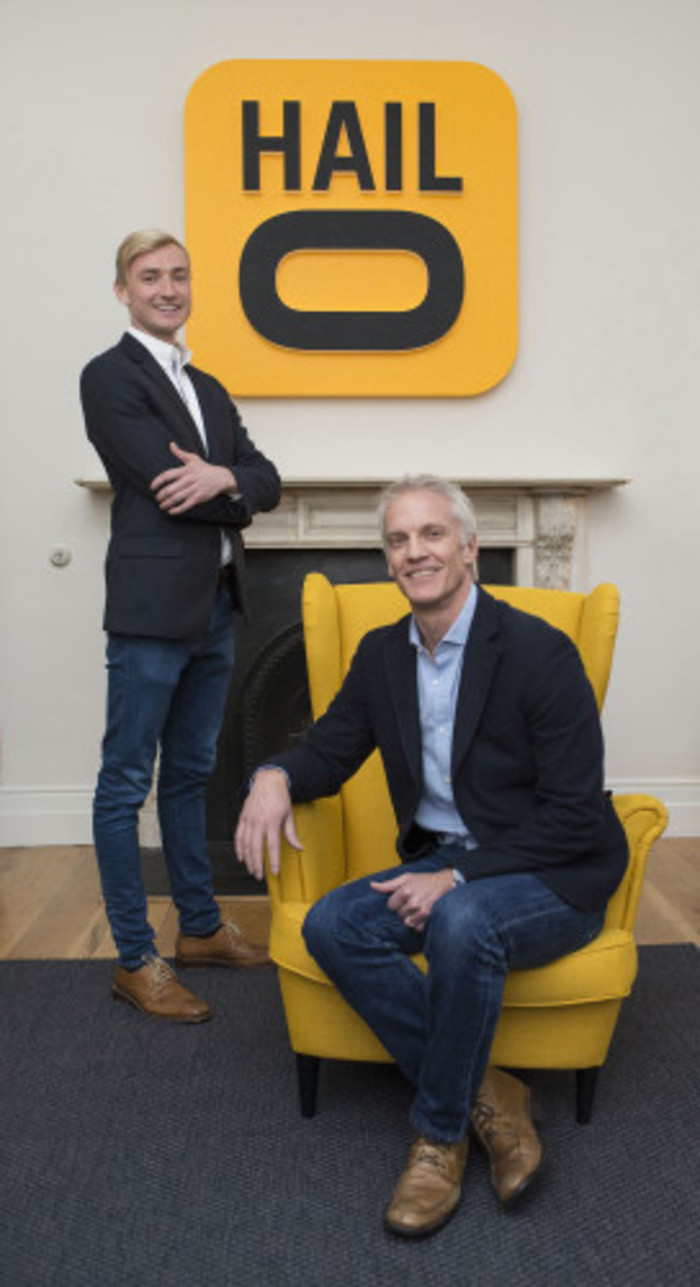 Hailo Ireland general manager Tim Arnold (left) with CEO Andrew Pinnington
Hailo Ireland general manager Tim Arnold (left) with CEO Andrew Pinnington
The rise of smartphones helped Hailo take the London cab scene by storm, and Arnold then helped to launch the company’s Irish offering in 2012.
Still just 29 years old, Arnold is now responsible for helping to manage the company through a period of extreme change as it merges with a huge European rival.
What do you do and how long have you done it for?
Hailo is the go-to taxi app for many Irish people stuck for a lift, with the company’s smartphone app allowing users to easily order a taxi.
The firm signs up and vets drivers to use its service. Hailo gets a slice of every fare that is booked through the app, and in return the cabbies get access to more potential customers.
The company was founded in 2010 as a partnership between several London taxi drivers and entrepreneurs. It launched in Ireland in 2012, setting up an office in Dublin’s city centre.
“We had over 400 drivers at launch and we were immediately one of the largest taxi networks in the city (but) on day one we had a low double-digit number of passengers before we did any announcements or PR,” Arnold says.
However once word spread the service quickly caught on, and Hailo now has a fleet of several thousand drivers operating across the country.
However, the firm has had less success internationally. After launching in Ireland and the UK, the company rolled out across a slew of cities in North America and Europe but soon came under increasing competition from Uber, the ride-sharing service that allows virtually anyone with a licence to ferry passengers from place-to-place for cash.
Uber quickly grew to dominate the US and several other countries, leaving Hailo to beat a hasty retreat to its core markets of Ireland, the UK and Spain.
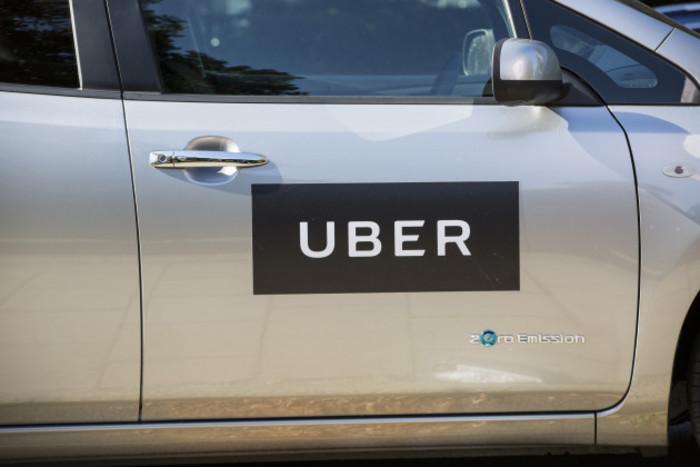 Hailo faced stiff competition from Uber
Hailo faced stiff competition from Uber
Despite its success in Ireland, which was at least partially due to how tightly regulated the taxi industry is here, the brand is set to disappear. It was recently announced that Daimler, which owns several major car brands including Mercedes-Benz, has acquired a majority stake in Hailo and is set to merge it with one rival Mytaxi.
Nevertheless, Arnold is optimistic about the merger, which will see Hailo’s name changed to that of its new stablemate.
What are your costs and how do you make money?
Hailo’s money all comes from the drivers. The company has a relatively small number of staff in Ireland, about 16 full-time employees, who are mostly dedicated to maintaining and improving the firm’s app and website, or smoothing its relationships with drivers, the media and government.
The company takes a 12% cut of any fare booked through its service, although Arnold says that there are no sign-up or membership fees. He admits that drivers will say that the rate “isn’t cheap”, but adds that the company “offers the best-value way to get bums on seats”.
“We have the lowest commission for any source of bookings for drivers, and we lower their costs by reducing the number of dead miles that they are driving, so we reduce the amount of fuel used that they are spending money on,” he says.
Arnold adds that the firm provides drivers with incentives to take bookings at peak times, when fares are easy to come by. These might be in the form of making someone a “priority driver”, so that they show up on the app first during times of lower demand.
Hailo Ireland saw its net cash jump from about €400,000 to €1.2 million at the end of 2014. Arnold will not reveal what the company is turning over in a year, simply stating that the firm is “continuing to perform ahead of targets”.
What is your market?
At one stage it looked like Hailo was going to take on the world, moving into countries such as Canada and Japan once it had established a foothold in the UK and Ireland.
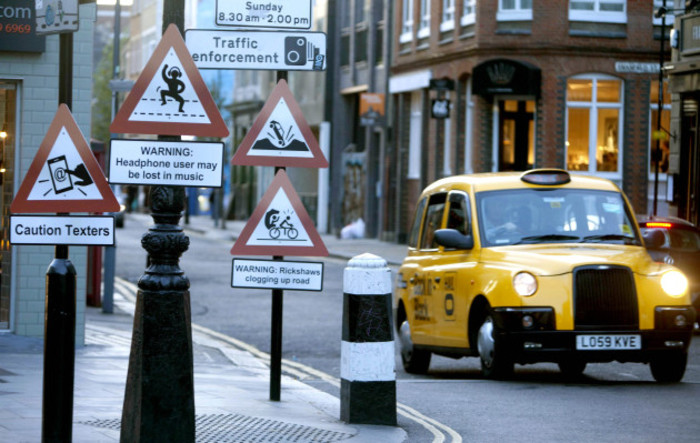 Hailo struggled outside Ireland and the UK
Hailo struggled outside Ireland and the UK
Although the company as a whole has since had to scale back its operations, Hailo Ireland has managed to expand to offer some level of service to the bulk of the country, although Dublin remains its stronghold.
“We look at where drivers are and where there is demand for taxis, and Cork has the most after Dublin,” Arnold says. “But it goes from about 10,000-11,000 taxis in Dublin to about 1,500 in Cork, so Dublin is much larger.
“About 60% of the entire industry in Ireland is in Dublin, and our split would be even more heavily weighted in favour of Dublin.”
Towards the end of last year the firm also started to move into the corporate market, and Arnold says that the firm now has “hundreds” of business clients.
What is the competition?
Hailo has become the dominant player in the Irish consumer taxi market, with about half of Ireland’s 18,000 taxi drivers registered and hundreds of thousands of app downloads from smartphone users.
The company’s presence has forced traditional Irish taxi companies to adapt to survive. Taxi-fleet management company Global Taxis developed its own app called Lynk, which now claims to have signed up about 2,800 drivers.
Seperately, towards the end of last year, three of Dublin’s biggest taxi firms, Xpert Taxis, National Radio Cabs and VIP Taxis, joined forces to launch a new app called eCab.
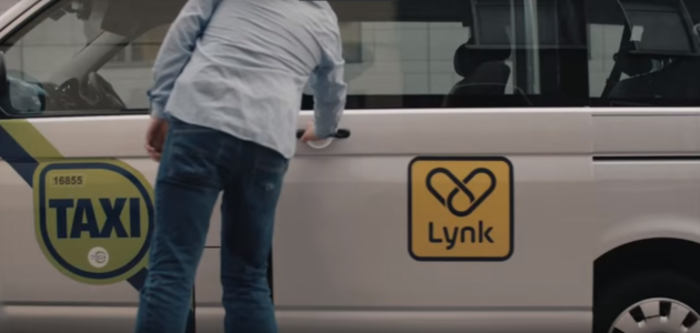 New apps like Lynk are competing with Hailo
New apps like Lynk are competing with Hailo
Arnold maintains that he is not overly concerned about the competition, saying that having Ireland’s largest fleet means Hailo has the best service and shortest wait times.
The real fear for Hailo would be if Uber was allowed to roll out its ride-sharing offering here. Under current legislation it’s a non-runner, and the government hasn’t been overly pushed to change its stance.
Arnold maintains that it is not needed, saying: “You can innovate within the registered taxi market without operating outside of it.”
What is your vision?
The main focus for the company in the short-term is the merger with Mytaxi. Assuming that all goes ahead as planned, Hailo will likely begin its rebrand here in the new year.
The combined company is expected to have 100,000 registered taxi drivers in over 50 cities across nine countries in Europe, and the bulk of these will come from existing Mytaxi operations.
Still, the brand has performed strongly in Ireland and its shakeup will probably come as a surprise to many consumers. Is Arnold disappointed to see it go?
“No, it is fantastic news, the combination with Mytaxi will make us the largest taxi app in Europe,” he says. “The strengths of their product are complementary to ours and the drivers and the passengers will benefit.”
Arnold is keen to keep plugging away at Hailo, making the rather grand pronouncement that he will “lead the team into the future”. He is also eager to restart his travels at some point.
“I do love to travel and I could see myself working elsewhere,” he says.
“As the new company grows I am sure that there will be opportunities in new markets (but) we will see how things progress, especially over the next six to nine months.”
This article is part of our weekly series examining the nuts and bolts of businesses. If you would like to see your company featured please email news@fora.ie.
